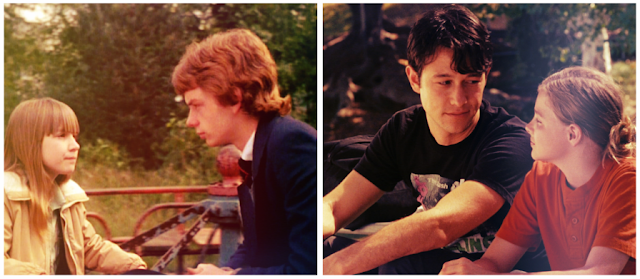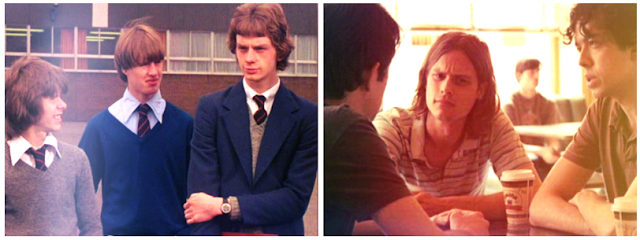Simon Larsson is a cerebral child, the son of a boat maker and his wife, whose deep penchant for history, books and art is out of keeping with his working-class roots. The disharmony between Simon's upbringing and his yearning for the more intellectual threads of life is most palpable in an early scene between the youngster and his father. Mr. Larsson warns Simon to remember where he comes from, after reluctantly enrolling his son in a grammar school frequented by the wealthy.
There Simon meets Isak, the Jewish son of a wealthy bookstore owner. Simon is introduced to and enamoured with the world of the upper classes and soon finds himself on a path which sets him further apart from the values of his upbringing.
Isak and his father however come from a volatile background of their own and the backdrop of WW2 serves to heighten the turbulence of what becomes an inextricable link between the two families. Both harbour secrets which hang menacingly throughout the narrative and prompt Simon on a journey of painful self-discovery.
Isak escapes from the persecution of the Jews and his own personal demons in the solace of Simon's home life, building a surrogate relationship with Mr. Larrson. The two relish in their shared love for practical labour, to the detriment and expense of the already strained relationship between Simon and his father. Likewise, Simon finds a kindred spirit in Isak's father who indulges his love for music and history, all the while impressing on Simon that ultimately his life choices are his own.
The discord of Simon's familial relationships and the angry overtones of war denote the enduring gulf between Simon and those around him. He finds solace in and draws comfort from the unyielding, stalwart oak tree of the film's title. Daydreaming amongst the imagined whispers of history as they ride on the wind and through its branches, the Oak tree symbolises a sense of constancy and placement that Simon so desires.
Jonatan S. Wächter delivers a stand-out performance, eclipsing those of his older counterparts with an ephemeral quality which fits perfectly with Simon's transient nature. His manner evokes that of an old soul, haunted with the anxieties of the past and bereft of somebody who can truly understand him. Bill Skarsgård maintains the childlike quality of his younger counterpart's performance as he takes the torch from Wächter and carries it into Simon's teenage years. A wide eyed young man, Skarsgård's Simon drifts further from within himself in a journey of wider self-discovery, family secrets and romantic relations.
Jonatan S. Wächter delivers a stand-out performance, eclipsing those of his older counterparts with an ephemeral quality which fits perfectly with Simon's transient nature. His manner evokes that of an old soul, haunted with the anxieties of the past and bereft of somebody who can truly understand him. Bill Skarsgård maintains the childlike quality of his younger counterpart's performance as he takes the torch from Wächter and carries it into Simon's teenage years. A wide eyed young man, Skarsgård's Simon drifts further from within himself in a journey of wider self-discovery, family secrets and romantic relations.
Simon and the Oaks' cinematography features beautiful shots of nature at its most peaceful - untouched by the violence of war and the turmoil of the narrative. With the overwhelming changes to Simon's world, both personally and with regards to the wider political context, both he and the audience derive a sense of calm from the ageless and rural pastoral. The soundtrack is equally as stirring, evoking the same sense of yearning possessed by Simon in aching violin notes with beautiful, melodious undertones. In both nature and music, Simon finds his peace and place in the world - fitting, for both are timeless and belong to no time or context.
"It was as if I knew it. As if... I'd been there before. Inside the music."
"Jewish" - Annette Focks
A beautifully shot coming of age tale, this film prompted me to seek out its novel counterpart, which I will endeavour to post about soon!
















